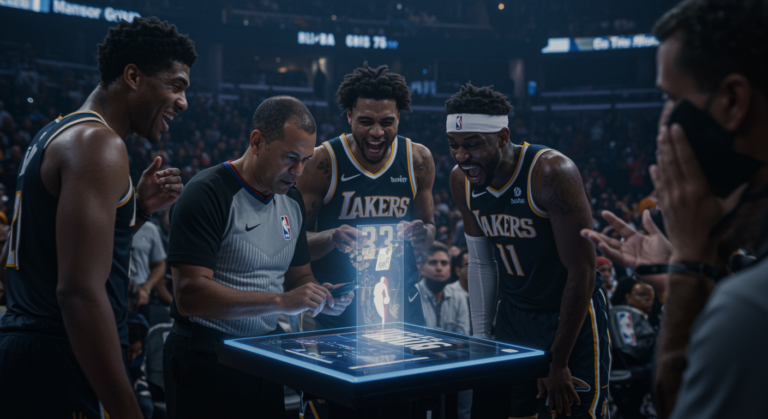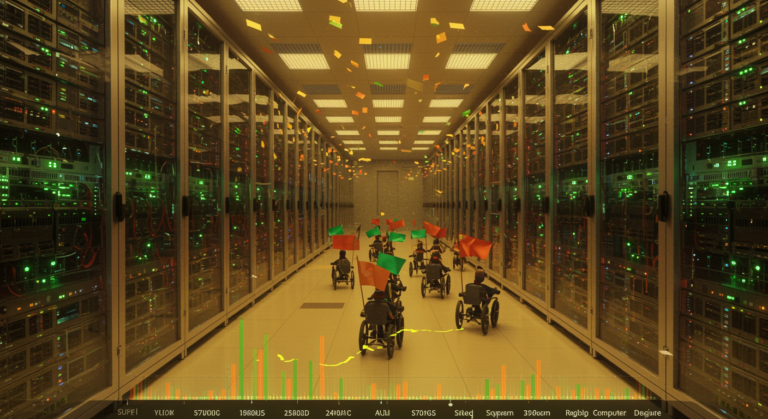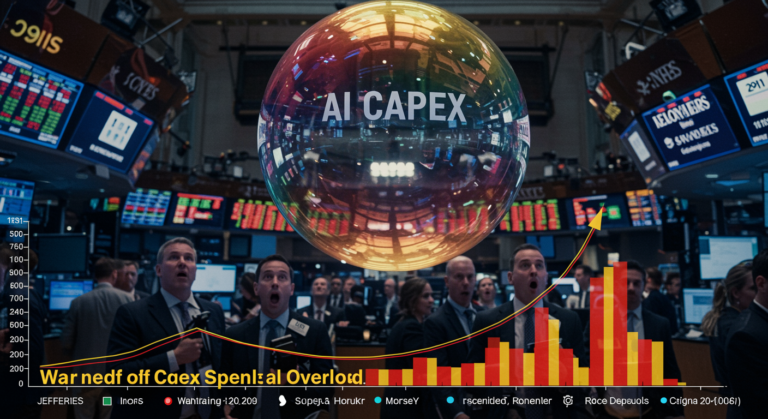
AI Lawsuits Escalate: Publishers Battle Blocking Bots
Introduction
In the fast-paced world of technology, AI lawsuits are reshaping how we think about digital content and innovation. Publishers are pushing back hard against AI companies that use their material without permission, creating a clash over intellectual property rights and the future of online media. This ongoing battle highlights the need for balance between advancing AI and protecting creators’ work.
The Surge of AI Lawsuits
AI lawsuits have exploded in recent months, with publishers taking bold steps to challenge the unchecked scraping of their content by AI firms. Major players like Ziff Davis and the News/Media Alliance are leading the charge, accusing companies such as OpenAI of blatant copyright violations. It’s a sign of deeper tensions in the generative AI landscape, where vast amounts of web data are being harvested to build smarter machines.
Think about it: these cases aren’t just about one bad actor; they’re symptomatic of a larger problem. For instance, Ziff Davis filed a lawsuit against OpenAI, claiming the company deliberately ignored copyright boundaries to train its models. Similarly, the News/Media Alliance, representing numerous news outlets, has gone after Cohere for what they call systematic misuse of protected content. And let’s not forget Thomson Reuters’ recent win against ROSS Intelligence, which could set a precedent for other AI lawsuits down the line.
- Ziff Davis highlighted large-scale infringement in their case against OpenAI, pointing to how AI lawsuits are forcing a reevaluation of data usage ethics.
- The News/Media Alliance’s action against Cohere underscores the collective effort needed in AI lawsuits to protect smaller publishers.
- Thomson Reuters’ victory serves as a beacon for content owners navigating the complexities of AI lawsuits.
This wave of AI lawsuits isn’t slowing down, as more publishers recognize the threat to their revenue streams. Have you ever wondered how your favorite news site’s content ends up powering AI responses without any credit or payment? It’s a question at the heart of these legal battles.
Publishers’ Struggle to Block AI Scraping Bots
Even as AI lawsuits pile up in the courts, publishers are on the front lines, trying to block the bots that siphon off their material. The challenge is immense, especially since many AI models have already been trained on years of internet data. This makes blocking efforts feel like closing the barn door after the horses have bolted.
Technical Defenses and Their Limitations
Publishers are deploying various tools to fend off AI scraping bots, but the results are mixed. Robots.txt files, for example, are meant to politely ask bots to stay out, yet savvy AI scrapers often ignore them altogether. It’s like putting up a “No Trespassing” sign on a fence that’s easy to jump.
- Robots.txt files: These are standard but unreliable, as many bots simply bypass them.
- Paywalls: Great for subscribers, but they don’t stop determined scrapers and aren’t feasible for all sites.
- AI-blocking tags: Emerging options that target specific bots, though their effectiveness is still unproven against adaptive tech.
For smaller publishers, keeping up with these defenses is a real headache, especially when they’re up against AI giants with deep pockets. In the midst of escalating AI lawsuits, this tech arms race raises an important question: How can creators safeguard their work without stifling innovation? One strategy might be collaborating on open-source tools that make blocking easier and more affordable.
The Legal Battleground: Copyright, Fair Use, and Derivative Works
At the core of many AI lawsuits is a fundamental debate: Does training AI on copyrighted material count as infringement? Courts are diving into this, examining whether AI outputs are transformative enough to qualify under fair use or if they’re just unauthorized copies. It’s a gray area that’s forcing everyone to rethink digital rights.
The key tests in these AI lawsuits often revolve around access and similarity. Did the AI actually use the original content, and is the result too close for comfort? Fair use arguments are hotly contested, with AI companies claiming educational or transformative value, while publishers demand proper attribution and compensation. As these cases unfold, they’re shaping what “derivative works” really means in the AI age.
Comparing Legal Strategies
To get a clearer picture, let’s break down how different players are approaching these AI lawsuits.
| Legal Approach | Publishers | AI Companies |
|---|---|---|
| Copyright Infringement Claims | Pursuing damages and blocks, emphasizing protection in AI lawsuits | Defending with fair use arguments to keep innovation flowing |
| Technical Enforcement | Relying on barriers like anti-AI tags amid rising AI lawsuits | Developing bots that evade basic restrictions |
| Negotiated Licensing | Seeking deals for fair pay and credit in AI lawsuits settlements | Forming selective partnerships to avoid litigation |
This comparison shows that AI lawsuits are pushing both sides toward more collaborative solutions, like licensing agreements that benefit everyone. If you’re a content creator, consider auditing your site’s defenses now—it’s a proactive step that could save you from future headaches.
Industry Adaptations and Negotiations
While AI lawsuits continue to escalate, some publishers are shifting gears toward negotiations, recognizing that lawsuits alone won’t fix the problem. Big names are striking deals with AI firms for access to content in exchange for revenue sharing and proper attribution. It’s a pragmatic move that could open new income streams.
Imagine a world where your articles help power AI tools, and you get paid for it—that’s the potential here. However, not all publishers are at the table; smaller ones often get left out, facing the risk of ongoing scraping without rewards. Transparency and ethical standards are key demands, ensuring that any deal respects the original creators. As AI lawsuits highlight, adaptability is crucial—perhaps exploring hybrid models where content is licensed with built-in safeguards could be a game-changer.
- These deals provide fresh revenue, turning threats into opportunities.
- Smaller outfits might benefit from industry coalitions to strengthen their position in AI lawsuits.
- Always push for attribution to maintain your brand’s integrity.
Broader Implications: The Future of Content and AI
The fallout from AI lawsuits extends far beyond the courtroom, questioning the very sustainability of digital journalism. If AI companies keep pulling content without compensation, the quality of news and creative work could suffer, as publishers struggle to fund their operations. On the flip side, overly strict rules might hinder AI’s potential to drive positive change, like faster research or personalized learning.
Consider a hypothetical scenario: A startup uses AI to summarize news for underserved communities, but gets bogged down in AI lawsuits. How do we balance access and protection? This tension is fueling calls for new regulations that promote ethical AI development while supporting content creators.
Key Takeaways for Publishers and Content Creators
Navigating AI lawsuits requires a multifaceted approach, blending legal action with smart tech strategies. Start by assessing your content’s vulnerabilities and implementing robust defenses to stay ahead.
- Legal and technical solutions must work together to effectively counter threats from AI lawsuits.
- Industry collaboration can amplify your voice and lead to stronger protections.
- Ongoing AI lawsuits are likely to influence future laws, so keep an eye on developments and adapt accordingly.
- Adaptability and negotiation might just be your best tools in this evolving landscape—don’t hesitate to explore partnerships that align with your values.
As a creator, what steps are you taking to protect your work? Sharing strategies in the community could help others facing similar challenges.
Conclusion
In this high-stakes era, AI lawsuits are only intensifying, with publishers determined to block bots and safeguard their livelihoods. The road ahead involves innovation, unity, and perhaps a bit of compromise to ensure that both AI and content creators thrive. As we watch these battles unfold, remember that your input matters—what are your thoughts on these developments? Feel free to share in the comments, explore our related posts on AI ethics, or sign up for updates to stay informed.
References
Here are the sources referenced in this article:
- Digiday. “As AI lawsuits mount, publishers still struggle to block the bots.” Link
- Press Gazette. “News publisher AI deals and lawsuits: OpenAI and Google.” Link
- Baker Law. “Case Tracker: Artificial Intelligence Copyrights and Class Actions.” Link
- News Media Alliance. “Lawsuit Against AI Content Theft.” Link
- The Daily Upside. “Whatever Happened to All Those AI Copyright Lawsuits?” Link
- TechTarget. “Is AI-Generated Content Copyrighted?” Link
- Ryrob. “AI Article Writer.” Link
- AdMonsters. “AI Search Is Eating the Web: Can Publishers Stop It?” Link
AI lawsuits, publishers, copyright infringement, blocking bots, generative AI, fair use, web scraping ethics, AI companies, intellectual property, derivative works







